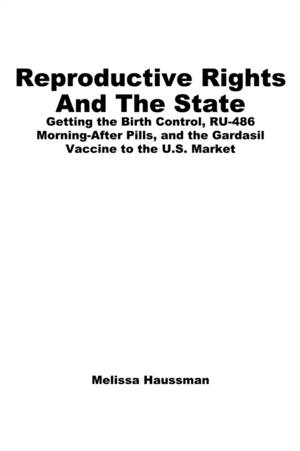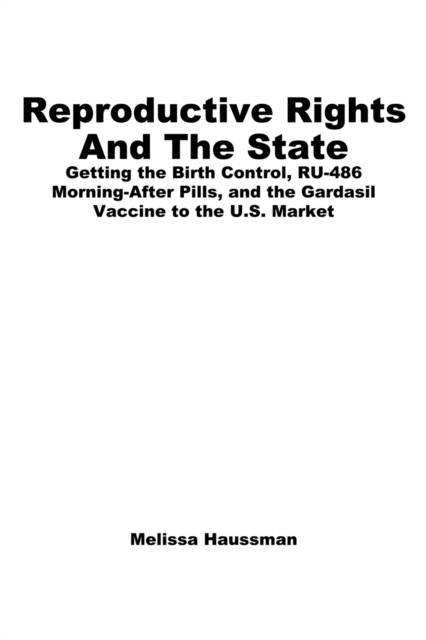
Je cadeautjes zeker op tijd in huis hebben voor de feestdagen? Kom langs in onze winkels en vind het perfecte geschenk!
- Afhalen na 1 uur in een winkel met voorraad
- Gratis thuislevering in België vanaf € 30
- Ruim aanbod met 7 miljoen producten
Je cadeautjes zeker op tijd in huis hebben voor de feestdagen? Kom langs in onze winkels en vind het perfecte geschenk!
- Afhalen na 1 uur in een winkel met voorraad
- Gratis thuislevering in België vanaf € 30
- Ruim aanbod met 7 miljoen producten
Zoeken
Reproductive Rights and the State
Getting the Birth Control, RU-486, and Morning-After Pills and the Gardasil Vaccine to the U.S. Market
Melissa Haussman
Hardcover
€ 65,95
+ 131 punten
Omschrijving
Simultaneously examining four significant, never-before-combined case studies, this unique feminist analysis offers troubling revelations about the private-public interaction in U.S. policy affecting birth control drugs.
Specificaties
Betrokkenen
- Auteur(s):
- Uitgeverij:
Inhoud
- Aantal bladzijden:
- 200
Eigenschappen
- Productcode (EAN):
- 9780313398223
- Verschijningsdatum:
- 11/01/2013
- Uitvoering:
- Hardcover
- Afmetingen:
- 156 mm x 235 mm
- Gewicht:
- 482 g

Alleen bij Standaard Boekhandel
+ 131 punten op je klantenkaart van Standaard Boekhandel
Beoordelingen
We publiceren alleen reviews die voldoen aan de voorwaarden voor reviews. Bekijk onze voorwaarden voor reviews.









